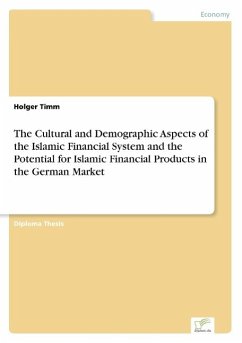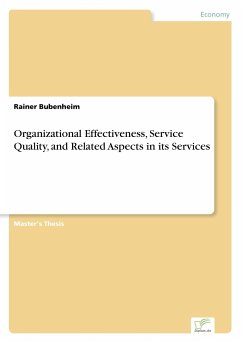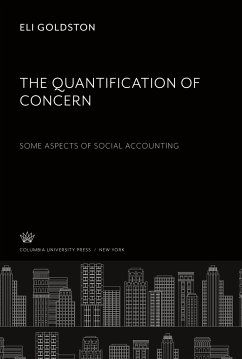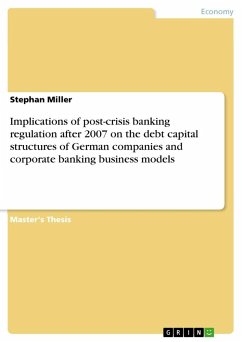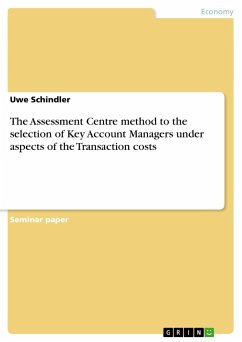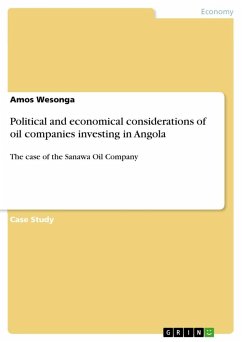
German Companies doing Business in Post Communist Bulgaria: Legal & Economical Aspects
Versandkostenfrei!
Versandfertig in 1-2 Wochen
74,00 €
inkl. MwSt.

PAYBACK Punkte
0 °P sammeln!
Master's Thesis from the year 2003 in the subject Business economics - Trade and Distribution, grade: 1,4, Berlin School of Economics and Law (Wirtschaftswissenschaften), language: English, abstract: Inhaltsangabe:Introduction:In this thesis, I will strive to understand how German companies can be successful in post-Communist Bulgaria and why they might want to move their operations to Bulgaria. The central objective of this thesis is to assess the post-Communist business environment for German companies in Bulgaria. Hence, I will closely examine the present legal and economical environment of...
Master's Thesis from the year 2003 in the subject Business economics - Trade and Distribution, grade: 1,4, Berlin School of Economics and Law (Wirtschaftswissenschaften), language: English, abstract: Inhaltsangabe:Introduction:
In this thesis, I will strive to understand how German companies can be successful in post-Communist Bulgaria and why they might want to move their operations to Bulgaria. The central objective of this thesis is to assess the post-Communist business environment for German companies in Bulgaria. Hence, I will closely examine the present legal and economical environment of Bulgaria and will demonstrate the realm of opportunities this country has to offer to Western European entrepreneurs. Indeed the thesis can be presented that:
German companies may avoid the disadvantages of globalisation by moving operations to Bulgaria.
In order to highlight certain possibilities and achievements I will refer to German companies, which have already successfully built up operations in Bulgaria. One way to successfully analyse a certain industry, country or region is by applying a SWOT analysis. Especially the transition countries in Eastern Europe are interesting to analyse, because the region is faced with many opportunities as well as threats to the changing process. Consequently, reference will be made to the theoretical framework of a SWOT analysis. The SWOT analysis provides a broad overview of the situation of a country and should, therefore, be applied on the transforming countries such as Bulgaria. Further I will also deal with the question of Foreign Direct Investment, its main motives and Bulgarian legal framework.
Before I begin to analyse Bulgaria s present economical, social and political situation, however, I believe it is necessary to provide a brief historical overview of the period, which preceded the imposition of communism, along with the performance of the Communist regime and its legacy. This seems especially vital since the Communist period shaped and controlled Bulgarian society for well over 40 years. As Emil Giatzidis states in his book An introduction to post-Communist Bulgaria: Political, economic and social transformation Communist regimes had no civil society since Communist society was totally patronised and controlled by a party that was equivalent to the state.
Therefore, in all cases of former Communist countries special attention should be given to the issue of economic consolidation, since, as Giatzidis further argues the implementation of programmes to stabilise and more fundamentally to reform economies have posed formidable political challenges that have implications that go well beyond their immediate economic effect.
This holds especially true for Bulgaria. It is these changes and the resulting challenges, which drove me to choose this topic.
Having worked and lived in Bulgaria for over three months in the year 2000 as well as other Eastern European countries at that time, my interest in Bulgaria and particularly in its economic development has grown ever since. It is fascinating to see how German companies operate successfully in such a challenging and often difficult post-Communist business environment.
Out of all former Communist block countries, I find Bulgaria to be the most interesting as well as for my purposes best suited country to look at as it [holds] a set of characteristics different from those observed elsewhere in Central and Eastern Europe . Its limited market size and strong relationship with Germany further increases my curiosity.
Unlike other Eastern European countries Bulgaria had never enjoyed a period of democratic politics prior to the Communist takeover at the end of the Second World War (similar to Russia prior 1917). This means that Bulgaria is lacking in the necessary democratic tradition and culture much needed to establish a well functioning market economy. In the interviews...
In this thesis, I will strive to understand how German companies can be successful in post-Communist Bulgaria and why they might want to move their operations to Bulgaria. The central objective of this thesis is to assess the post-Communist business environment for German companies in Bulgaria. Hence, I will closely examine the present legal and economical environment of Bulgaria and will demonstrate the realm of opportunities this country has to offer to Western European entrepreneurs. Indeed the thesis can be presented that:
German companies may avoid the disadvantages of globalisation by moving operations to Bulgaria.
In order to highlight certain possibilities and achievements I will refer to German companies, which have already successfully built up operations in Bulgaria. One way to successfully analyse a certain industry, country or region is by applying a SWOT analysis. Especially the transition countries in Eastern Europe are interesting to analyse, because the region is faced with many opportunities as well as threats to the changing process. Consequently, reference will be made to the theoretical framework of a SWOT analysis. The SWOT analysis provides a broad overview of the situation of a country and should, therefore, be applied on the transforming countries such as Bulgaria. Further I will also deal with the question of Foreign Direct Investment, its main motives and Bulgarian legal framework.
Before I begin to analyse Bulgaria s present economical, social and political situation, however, I believe it is necessary to provide a brief historical overview of the period, which preceded the imposition of communism, along with the performance of the Communist regime and its legacy. This seems especially vital since the Communist period shaped and controlled Bulgarian society for well over 40 years. As Emil Giatzidis states in his book An introduction to post-Communist Bulgaria: Political, economic and social transformation Communist regimes had no civil society since Communist society was totally patronised and controlled by a party that was equivalent to the state.
Therefore, in all cases of former Communist countries special attention should be given to the issue of economic consolidation, since, as Giatzidis further argues the implementation of programmes to stabilise and more fundamentally to reform economies have posed formidable political challenges that have implications that go well beyond their immediate economic effect.
This holds especially true for Bulgaria. It is these changes and the resulting challenges, which drove me to choose this topic.
Having worked and lived in Bulgaria for over three months in the year 2000 as well as other Eastern European countries at that time, my interest in Bulgaria and particularly in its economic development has grown ever since. It is fascinating to see how German companies operate successfully in such a challenging and often difficult post-Communist business environment.
Out of all former Communist block countries, I find Bulgaria to be the most interesting as well as for my purposes best suited country to look at as it [holds] a set of characteristics different from those observed elsewhere in Central and Eastern Europe . Its limited market size and strong relationship with Germany further increases my curiosity.
Unlike other Eastern European countries Bulgaria had never enjoyed a period of democratic politics prior to the Communist takeover at the end of the Second World War (similar to Russia prior 1917). This means that Bulgaria is lacking in the necessary democratic tradition and culture much needed to establish a well functioning market economy. In the interviews...





